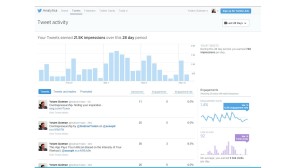We all know about annual evaluation process HR departments at big corporates love so much. The ritual is well-rehearsed; you receive a table with your goals, note what you’ve accomplished and what you strive to achieve in the next quarter/ year, enter a room and discuss these points with your manager, secretly hoping to have more positive than negative results which will ensure your annual bonus is intact. Year later, the process will repeat itself with very little change.
Managers hate this process- they have to evaluate dozens of employees, and are forced to mark the top performers and the not- so- great ones ( which are automatically in greater risk of being let go). Employees hate and fear these because they are closely related to monetary compensation. It seems no one actually believes this process results in any positive change (other than HR and the C-Suite, which love employee-related statistics). Sadly, this process is not likely to go away or change anytime. You can rebel against this (which will probably result in you being laid off), accept this and move on or think of better way to manage this process personally. Because the fundamental truth behind this measuring performance is undeniable- the things we don’t measure are the things we don’t manage. Look outside the HR/managers/employees triangle- and everyone’s obsessed with analytics, metrics and statistics. From re-tweets to likes, every possible digital piece of information is being recorded and analyzed, with the sole aim of improving performance. So why not use the same mindset to advance in your own venture (i.e. career)? you need to start paying attention to how well you perform in various areas and improve what is sub-par.
And the only way to do it is to measure yourself.
I’m not suggesting you need to measure every aspect of your life (although some, like Stephen Wolfram, have taken “Personal analytics” to the extreme http://www.technologyreview.com/news/514356/stephen-wolfram-on-personal-analytics/).
I’m saying you need to be aware of what you are doing and steadily improve it, at least career wise (If you are in sales you can stop reading now- you know everything about meeting your quota, closing percentages etc. in fact, the only tip I can give you is not to measure anything else and use other mechanism to improve oneself- like peer feedback. More statistic data about your performance is NOT what you need)
So instead of waiting for the next employee evaluation to come along, why don’t you take a different approach, a more owntrepreneurial one?
First – select your areas of interest, or research. These should be topics you wish to improve at or at least understand how well you are doing in. for instance: personal finance, Personal fitness, diligence, etc.
Then, identify how you can obtain data on these ongoing activities. With the help of our connected technology, it is possible to monitor just about anything: how many steps you walked each day, how many projects you were involved in and even how many people like your latest witty tweet.
Monitor- this is the hardest part, and it requires commitment. You need to allow the technology to actually monitor whatever it is you are trying to record. If your’ trying to see how many hours you’ve logged at work you need to devise a mechanism to allow you to record it (not all companies have a punch clock nowadays, so manual registration might be necessary).
Metrics – this is by far the hardest nut to crack. You need to set goals and see if you’ve accomplished them. It will not be easy because when you try this for the first time you lack benchmark. So I suggest that as a first step simply ignore this and try to see if you can collect enough meaningful information. Once you understand where you stand (or how far you’ve walked) you can use this as a benchmark and decide how much you think you can improve (which, quite simply, translate into goal setting for the future).
Sure- some areas are easier than others to measure and show improvement- I can check how many visitors my blog had over time and see if there is an increase over time. Others who work in less digital environment might find it harder to accomplish. Still, you can measure just about anything very easily today. So start small. For instance, through a great app called “goodreads” I can see I’ve read 14 books in 2014 (https://www.goodreads.com/review/list/6376717-yotam-gutman?read_at=2014). I now wish to maintain this number so I’ve set a goal for myself to read 14 books again this year (you will not be able to improve in all facets of your life, and that’s ok. If you measure one aspect and conclude it is sufficient just make sure your performance does not degrade in this respect). You can identify and define these humble goals, measure and see if you’ve achieved any improvement. If you have, mover these to the “maintenance” area and focus on other subjects.
Do this long enough and you are bound to make a big improvement over time.
But the most important thing is that you took responsibility over your own performance. No HR executive will ever do this for you, and the impact on your career will be profound.
Additional reading:
http://www.wired.com/2013/11/love-life-and-r-personal-analytics-gets-real/
http://www.technologyreview.com/news/514356/stephen-wolfram-on-personal-analytics/
http://research.gigaom.com/report/the-benefits-and-challenges-of-personal-analytics/

תגובה אחת על “Personal Analytics (Own-alytics?)”
[…] ← Personal Analytics (Own-alytics?) Mar 9 2015 […]
אהבתיאהבתי